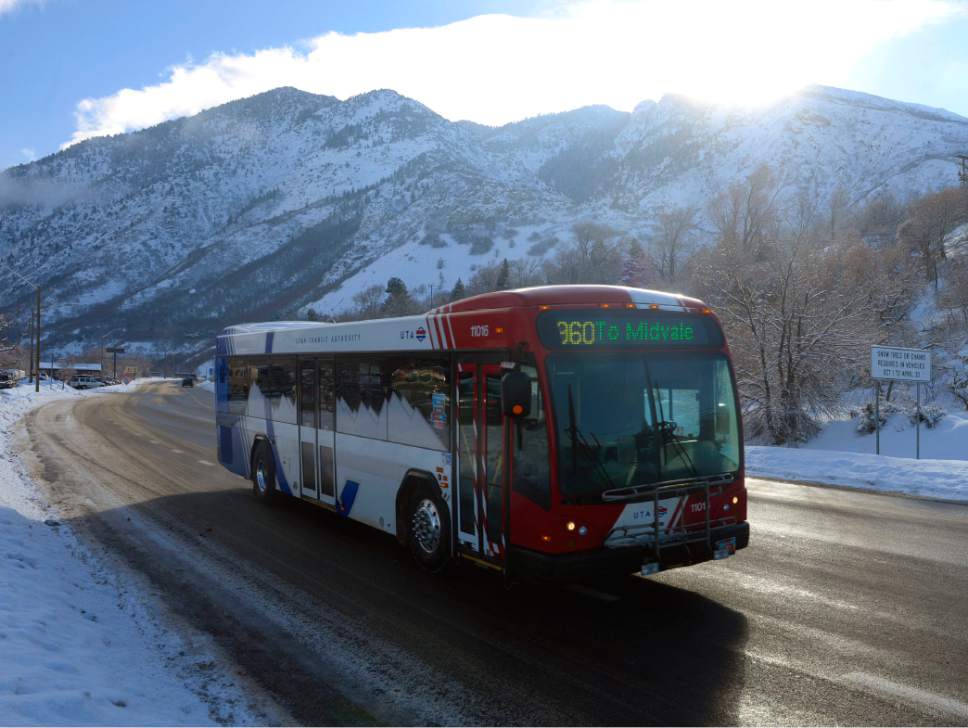This is an archived article that was published on sltrib.com in 2016, and information in the article may be outdated. It is provided only for personal research purposes and may not be reprinted.
Provo • By a 5-2 vote Tuesday, the Provo City Council rejected pleas from many residents to block construction of a transit project they say is not needed, will be too expensive — and is about to disrupt some of the city's busiest streets.
A week after listening to an overflow crowd complain for 3½ hours, the council — after another 1½ hours of debate — approved a 50-year lease at no cost to the Utah Transit Authority to use some roadways for a new "bus rapid transit" (BRT) project through Provo and Orem.
Extra-long BRT buses will travel on bus-only lanes for about half of their 10.5-mile Provo-Orem route. Passengers will buy tickets from machines before boarding, and buses have extra doors to speed entry. Buses may receive priority at traffic signals, and they will arrive about every six minutes at peak times.
Construction is scheduled to begin this summer, and BRT is scheduled to begin operation in spring of 2018. It will operate on such major roads as University Parkway and University Avenue to connect FrontRunner stations in Provo and Orem via Brigham Young University, downtown Provo and the Provo Towne Centre mall.
George Stewart, a former mayor and current member of the council, led an attack on the BRT and complained that the project and related road improvements — projected to cost $190 million — should have been put to a vote of the people.
He said the defeat last year of Proposition 1, to raise sales tax for transit and roads, in Utah County was seen by many as sort of a referendum against BRT. "Many who I have talked with voted against Proposition 1 because of their opposition to BRT."
Stewart said ridership on current bus routes that mirror the path of BRT "is so low and the cost to expand the current system so expensive and also so disruptive that it appears to me to be unwarranted." He said it will slow most nonbus traffic.
Stewart said defeating the lease could put at risk $75 million in federal funding for BRT because the project would no longer meet cost-sharing guidelines, which could delay or stop the project — at least until a vote could be held.
But Wayne Parker, Provo's chief administrative officer, earlier told the council that killing the lease would not necessarily kill the BRT project — but it would eliminate many upgrades that Provo had negotiated.
He said the project could proceed on roads owned by the Utah Department of Transportation. But blocking use of some Provo roads for bus-only lanes and improvements would merely slow BRT buses and reduce the value of the project.
Several council members supported the project for that reason and argued that Provo should not go back on approval it gave to the project route two years ago — which had allowed planning for it to proceed.
Council member Dave Harding said the vote now after previous approval "is not a vote on the project itself, but is a vote on how to best manage the project." He said it is not necessary to send every project to people for a vote, and that tack may not even be possible under state law.
"I think this will be a very good project," Harding said, adding that it will benefit Provo for years. He said without the lease, "a much worse project would go forward."



